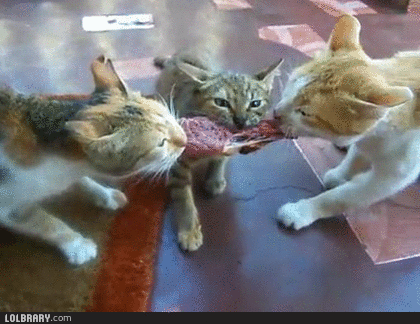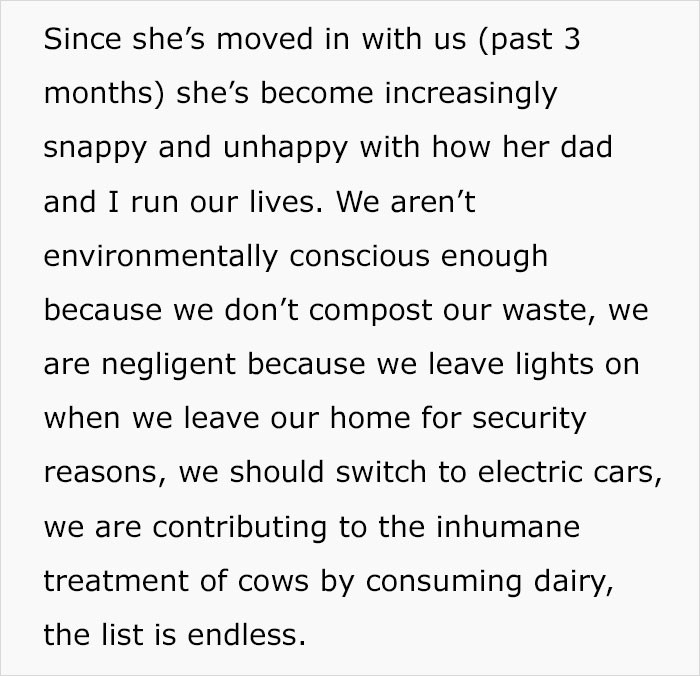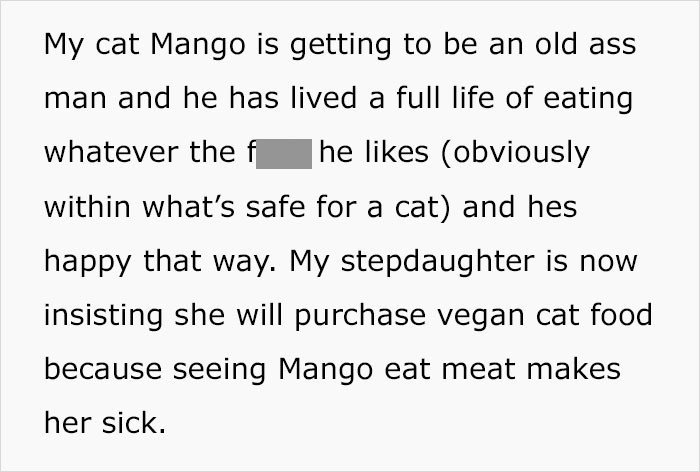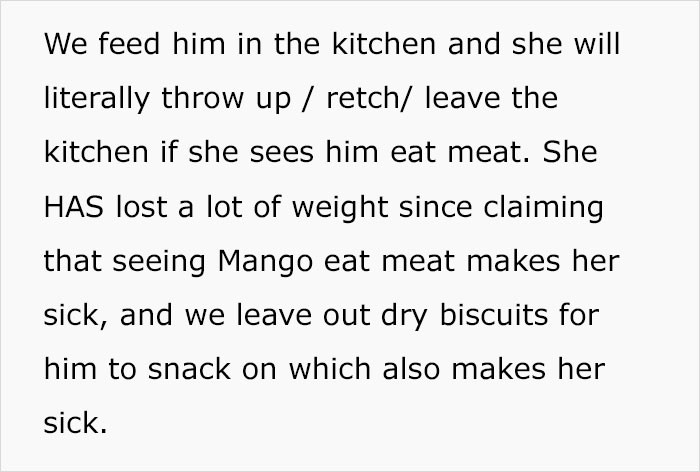Stepmother Dukes It Out With Vegan Stepdaughter Over Whether Or Not To Feed The Family Cat A Vegan Diet
Being vegan is more than just dietary choices for many vegans; it's a lifestyle. Unfortunately, some of those vegans want to impose their lifestyle onto their pets, such as cats and dogs. In recent years, pet professionals have lashed out over vegan diets for pets, and with good reason.
What happened to one family is just another example of how some vegans push boundaries in the most absurd ways. A stepmother turned to the AITA subreddit to ask if she was the asshole. It turns out her stepdaughter was so appalled to see their family cat eating meat that she wasn't eating much herself and demanded that the cat also eat a vegan diet.
"AITA for telling my stepdaughter she’s absolutely under no circumstances allowed to switch out my cat's food for vegan food even though she’s losing weight because the sight of normal cat food makes her sick?"

The stepmother opens up with both an apology and a reason for doubting her intuition; her stepdaughter is educated.

It turns out the stepdaughter has some seriously major opinions.

The Complexity of Stepparent Relationships
This situation emphasizes the challenges inherent in stepparent-stepchild dynamics. Research indicates that blended families often face unique stressors that can complicate relationships, particularly surrounding parenting decisions. According to Dr. Shefali Tsabary, a renowned parenting expert, "Blended families require a delicate balance of understanding and communication to navigate differing parenting styles." Furthermore, Dr. Ross Greene, a child psychologist, notes that "the complexities of loyalty conflicts can lead to misunderstandings that hinder family cohesion." Understanding these dynamics is crucial for fostering healthier relationships within blended families.
The family cat, Mango, is finishing up the rest of his life in style, eating whatever he wants.

Even Mango's dry biscuits offend the vegan.

The smell of Mango's meat is just too much.

From a developmental psychology perspective, children in blended families may experience mixed feelings about their stepparents. Research has shown that children often have difficulty adjusting to new family structures, particularly if their biological parent is perceived as siding with the stepparent.
This can lead to feelings of resentment and conflict, making situations like the one described particularly fraught.
The parents have set firm boundaries, unwilling to budge while graciously offering a place for the adult child to live.

Mango gets quality nutrition, and the parents are not okay with feeding him a vegan diet.

And, of course, a mother-in-law inserted herself into the situation, casting doubt on the stepmother's mind.

Navigating Dietary Differences in Blended Families
Feeding decisions in blended families can spark significant conflict, especially when they involve differing values, such as dietary choices. Research indicates that food choices are often tied to identity and personal beliefs, making discussions about them particularly sensitive.
In this situation, the clash between veganism and traditional pet diets may represent deeper ideological differences that require careful navigation.
Molly DeVoss, a certified feline training and behavior specialist who runs the Cat Behavior Solutions agency, told Bored Panda:
“I can appreciate a vegan wanting to feed their pets the same diet because they are sensitive to animal welfare—so am I—but our Homo sapiens species’ nutritional needs are much different than felines’. Humans are omnivores, and felines are obligate carnivores.”
Molly continued:
“Cats require a diet that depends entirely on meat. There are many other obligate carnivore species, such as dolphins, seals, eagles, and walruses. Moreover, your cat gets essential fatty acids from meat that are not found in vegetables.”

Molly also said:
“You could provide additives to the vegetarian diet to try to compensate for the missing nutrients, but many are not bioavailable to cats. Dogs are omnivores; they get nutrition from both plant and animal sources, and your dog can probably survive on a vegan diet with added supplements to boost the proteins and essential fatty acids.”

Not only that, but even Molly eats very little meat; she feeds her own cat a "raw rabbit diet."

To address these conflicts, families can benefit from establishing collaborative decision-making processes. Research suggests that involving all parties in discussions about pet care can lead to more harmonious family dynamics.
Encouraging open communication and mutual respect for differing values is key to finding solutions that everyone can agree on.
“I, myself, would never eat rabbit, and it is emotionally difficult knowing so many rabbits have met their fate to feed my cat; however, I also know my cat cannot thrive on a counter-species diet,” says Molly.

It's also important to note how dangerous a vegan diet is for cats. Molly says:
“Another reason a plant-based diet is hard on cats is that their cecum is very small. The cecum is an organ located at the beginning of the large intestine. Felines’ cecum is very small, which makes digestion and absorption of plant matter difficult.”

"Contrast that to the cecum of a rabbit (a herbivore), which is large and contains bacteria that aids in the digestion of plant matter," Molly concluded.

The Importance of Empathy in Stepparent Relationships
Empathy plays a critical role in the success of stepparent-stepchild relationships. Studies show that when stepparents demonstrate understanding and compassion towards their stepchildren, it can significantly improve relationship satisfaction.
By fostering an environment of empathy, blended families can navigate the complexities of their relationships more effectively, leading to greater harmony and connection.
Thankfully, though, Molly is the only person to weigh in on the matter.
The original thread had over 3,700 comments and over 25,000 upvotes.

"Pets can, and have, died."

Sick of the girl.

Cats need meat!

It's a good thing not all vegans are like the stepdaughter.

NO. SUCH. THING.

"Cats don't work that way."

FACTS, honestly.

"Obligate Carnivores."
An obligate carnivore is one that depends entirely on meat because their diet requires nutrients that are only found in animal flesh.

Psychological Analysis
This situation highlights the intricate dynamics that often characterize blended families. Navigating differing values, especially around something as personal as dietary choices, requires sensitivity and open dialogue. It's crucial for families to approach these discussions with empathy to foster understanding and cooperation.
Analysis generated by AI
Analysis & Alternative Approaches
In summary, the dynamics of blended families can be complex and challenging, particularly regarding differing values and beliefs. By fostering open communication, empathy, and collaborative decision-making, families can navigate these challenges more effectively.
Ultimately, understanding and respect can lead to stronger bonds and healthier relationships within blended families.



